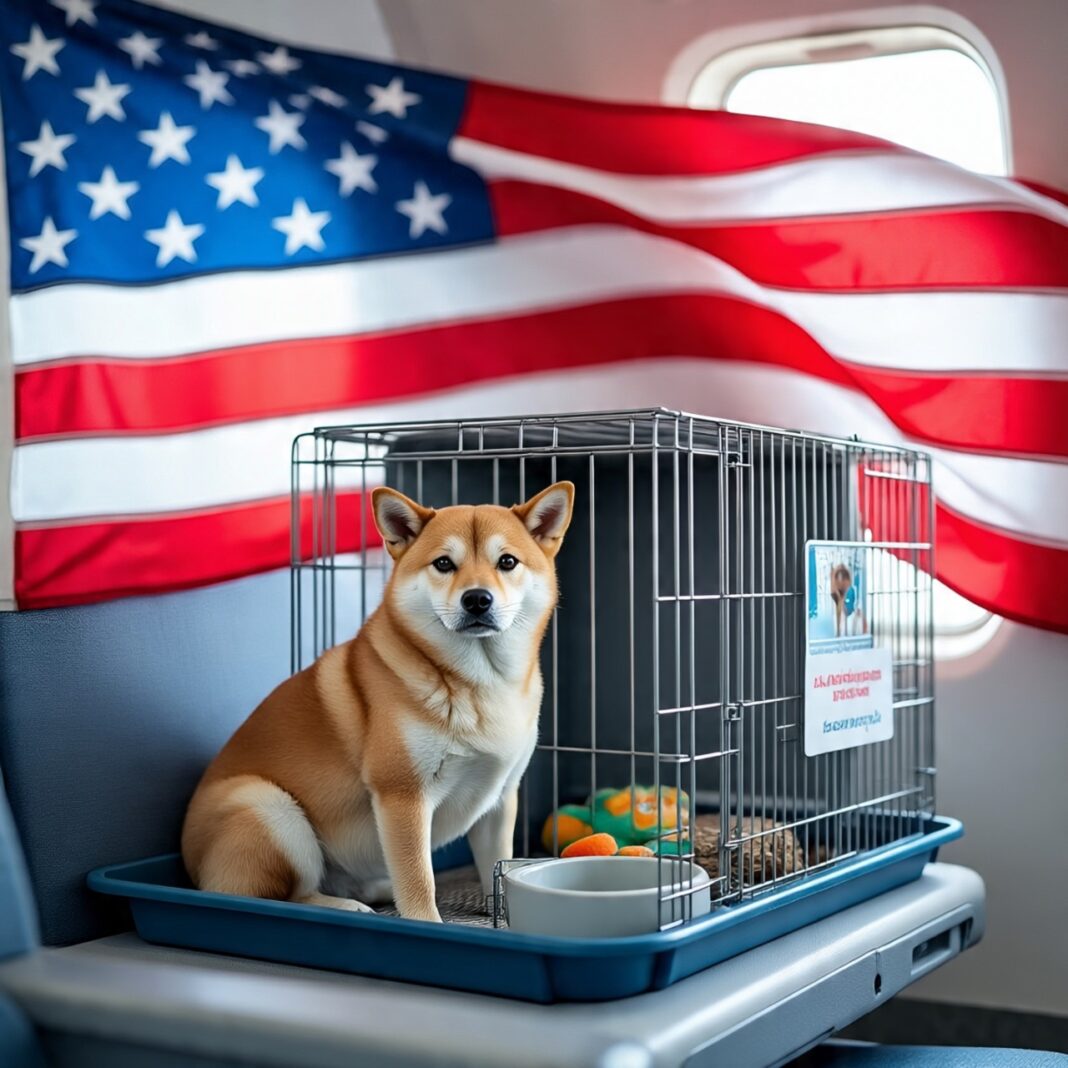Understanding APHIS Pet Travel Requirements
Traveling with your furry friend can be an exciting adventure. However, before you pack the dog’s favorite toy or the cat’s cozy blanket, it’s essential to understand the regulations surrounding APHIS pet travel. The Animal and Plant Health Inspection Service (APHIS) sets forth guidelines to ensure that pets are healthy and safe during their journeys—whether it’s a short trip across state lines or an international flight.
Every destination has its own set of rules regarding pet entry, and navigating these requirements can feel overwhelming. From health certificates to vaccination records, there is much to consider. But don’t worry! With some guidance and preparation, you’ll find it easier than ever to comply with APHIS regulations while keeping your pet happy and stress-free throughout the process.
As we delve into this topic, we will shed light on various aspects of APHIS pet travel requirements that every pet owner should know. Get ready for tips on streamlining compliance so both you and your four-legged companion can enjoy a smooth journey together!
Navigating the Regulations
Traveling with pets isn’t as simple as packing a bag and hitting the road. Each country, and often individual states, have their own regulations set by APHIS that must be followed. Understanding these rules is crucial for a hassle-free journey.
First, determine your destination. Some countries require specific vaccinations or health checks before entry. Others might have quarantine requirements if your pet doesn’t meet certain criteria. Researching these details ahead of time can save you from unexpected surprises at customs.
Next, consider the type of transportation you’ll use. Airlines vary in their pet travel policies, including crate specifications and documentation needed for boarding. Be sure to check with your airline well in advance to avoid any last-minute complications.
Documentation plays a pivotal role when navigating regulations. You’ll likely need an international health certificate issued by a veterinarian accredited by the USDA or APHIS-approved authorities. This document confirms that your pet is healthy enough for travel and has received necessary vaccinations.
Stay organized! Create a checklist of all required documents and ensure everything is up-to-date well before departure day arrives. The more prepared you are, the easier it will be to navigate through various regulations without unnecessary stress during your travels.
Unraveling the Compliance Process
Understanding the compliance process for APHIS pet travel can feel overwhelming. Each country has its own set of rules, and these regulations often change. It’s crucial to stay updated on requirements that directly impact your pet’s journey.
First, you’ll need to gather specific documents. This includes proof of vaccinations, health certificates, and any other necessary paperwork mandated by the destination country. Missing even one document can delay or derail your plans.
Next comes the role of a USDA-accredited veterinarian. These professionals are essential in ensuring all health documentation meets international standards. They provide guidance on which vaccines are required and help fill out the needed forms accurately.
Scheduling appointments with veterinarians is another step in this intricate dance. It’s wise to start this process well in advance of travel dates—some vaccinations require time to take effect or may have waiting periods before traveling.
Don’t forget about potential quarantine measures upon arrival at your destination. Some countries impose strict conditions for pets entering their borders, making it vital to understand these implications early on in your preparation process. Keeping everything organized will help ensure a smoother experience as you navigate the complexities of APHIS pet travel regulations.
Streamlining Travel Compliance
Traveling with pets can be a complex process, but streamlining compliance can ease the journey. Understanding APHIS pet travel requirements is the first step. Familiarizing yourself with these regulations ensures you have all necessary documents ready in advance.
Start by gathering essential information about your destination’s specific requirements. Each country has different laws regarding pet entry, and preparation is key to avoiding last-minute surprises. Research timelines for paperwork as some certificates may need to be issued within a certain number of days before travel.
Utilize technology to stay organized during this process. There are apps and tools designed specifically for pet travelers that help track vaccination records, health certificates, and other necessary documentation. These resources make it easier to manage everything in one place.
Another way to streamline compliance is through communication with your veterinarian early on. Schedule an appointment well ahead of your trip so they can guide you through vaccinations required by both APHIS and your travel destination’s guidelines.
Don’t hesitate to reach out directly to airlines or transport services for clarification on their individual policies regarding traveling with pets. This proactive approach minimizes stress and prepares you thoroughly for a seamless journey alongside your furry companion.
Veterinarians’ Challenges
Veterinarians face numerous challenges when it comes to facilitating pet travel. The complexities of regulations can be overwhelming. Each country has its own requirements, and these rules often change without much notice. Keeping up with the latest updates is a constant struggle for many veterinary professionals.
Another hurdle is ensuring that all pets are healthy enough to travel. A thorough examination is crucial, but not every animal meets the physical criteria for flying or long-distance travel. Veterinarians must assess each pet individually, which adds time and pressure to their already busy schedules.
The compliance process can also be daunting for veterinarians who may not specialize in international travel protocols. Navigating through forms like the International Health Certificate requires meticulous attention to detail to avoid mistakes that could delay or even prevent a pet’s journey.
Additionally, working with USDA-accredited veterinarians becomes essential in this context. Not all vets have this accreditation, making it hard for some clients to find qualified help quickly when planning their trips.
Communicating effectively with pet owners about what documents they need can be tricky. Many owners are unaware of specific regulations until right before they plan their trip, leaving vets scrambling to provide timely assistance amidst rising demands from anxious clients.
Qualifications for Pet Travel
When it comes to pet travel, understanding the qualifications needed is crucial. Each destination has specific regulations that can vary widely. Pet owners must be aware of these rules to ensure a smooth journey for their furry companions.
First and foremost, your pet should be up-to-date on vaccinations. Many countries require proof of rabies vaccination administered within a certain time frame. Always check the latest requirements well ahead of your trip to avoid any last-minute surprises.
Microchipping is another essential qualification for pet travel in many regions. It provides a permanent form of identification if your pet gets lost during transit or upon arrival at your destination. Make sure the microchip is registered with current information.
Some destinations may also have age restrictions regarding pets traveling internationally. Puppies and kittens might face additional scrutiny due to their vulnerability and potential health risks associated with young animals.
Furthermore, each airline has its own set of regulations concerning size, breed, and carrier types for traveling pets. Familiarizing yourself with these guidelines will prevent setbacks at check-in counters or boarding gates when you’re ready to embark on your adventure together.
USDA-Accredited Veterinarians
When it comes to pet travel, having the right documentation is crucial. One of the key players in this process is the USDA-accredited veterinarian. These professionals are certified by the United States Department of Agriculture to ensure that pets meet specific health requirements for international travel.
Choosing a USDA-accredited vet means you can rest assured that they understand APHIS pet travel regulations. They have undergone specialized training and possess up-to-date knowledge about vaccination protocols, parasite treatments, and other health considerations necessary for your fur baby’s journey.
It’s important to schedule an appointment well ahead of your planned departure date. A good time frame allows for any required vaccinations or treatments to take effect before you head out on your adventure. This planning also gives you ample opportunity to gather all needed documents without feeling rushed.
Additionally, these veterinarians can help facilitate obtaining an International Health Certificate, which may be required depending on your destination country. This certificate verifies that your pet is free from contagious diseases and has received necessary vaccinations.
Working with a USDA-accredited veterinarian not only simplifies compliance but also ensures peace of mind during your travels. Their expertise helps mitigate potential issues at customs or checkpoints along the way, making for a smoother experience overall.
Making Travel Plans
Planning a trip with your pet requires careful thought and organization. Understanding the APHIS pet travel requirements is crucial during this process. Start by researching your destination’s regulations. Each country has unique rules about what pets can enter, so don’t overlook this step.
Once you have clarity on those regulations, it’s time to book accommodations that welcome furry guests. Many hotels and rental properties offer pet-friendly options, but they may have specific requirements or restrictions. Always check their policies regarding size limits and additional fees.
Next comes transportation logistics. Whether you’re driving or flying, make sure to assess how your pet will be traveling safely. If flying, consult airlines for their specific guidelines on crate sizes and health documentation necessary for boarding.
It’s also wise to create an itinerary that includes stops at vet clinics along the way in case of emergencies. Familiarizing yourself with local resources ensures peace of mind while traveling.
Ensure your furry friend is comfortable during the journey itself. Bring familiar items like toys or blankets to help ease anxiety as you embark on this adventure together!
International Health Certificates
When it comes to traveling internationally with pets, understanding the role of International Health Certificates is vital. These documents serve as proof that your pet meets the necessary health requirements for entry into another country. Each nation has its own set of rules, so it’s crucial to research specific regulations ahead of time.
Typically issued by a USDA-accredited veterinarian, these certificates confirm that your pet has received required vaccinations and is free from contagious diseases. The timing for obtaining this certificate can be tricky; many countries require it to be issued within a certain timeframe before travel—often within 10 days prior to departure.
In addition to vaccines, some destinations may ask for treatment against parasites or other health assessments. Ensure you have all necessary paperwork ready well in advance. Missing documentation can lead to delays or even denial of entry at customs.
Always keep multiple copies of the International Health Certificate with you during travels. Having digital backups on your phone or email can also save you heaps of trouble should any issues arise.
Being proactive about understanding APHIS pet travel requirements will make your journey smoother and more enjoyable for both you and your furry friend. With careful planning and attention to detail, you’ll set off on an adventure filled with memories rather than complications.



